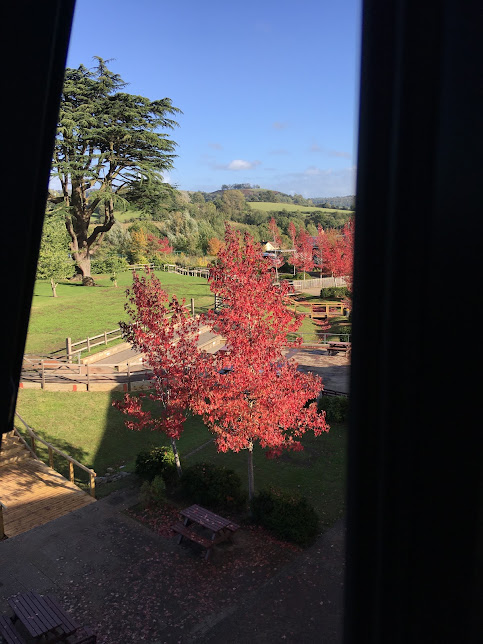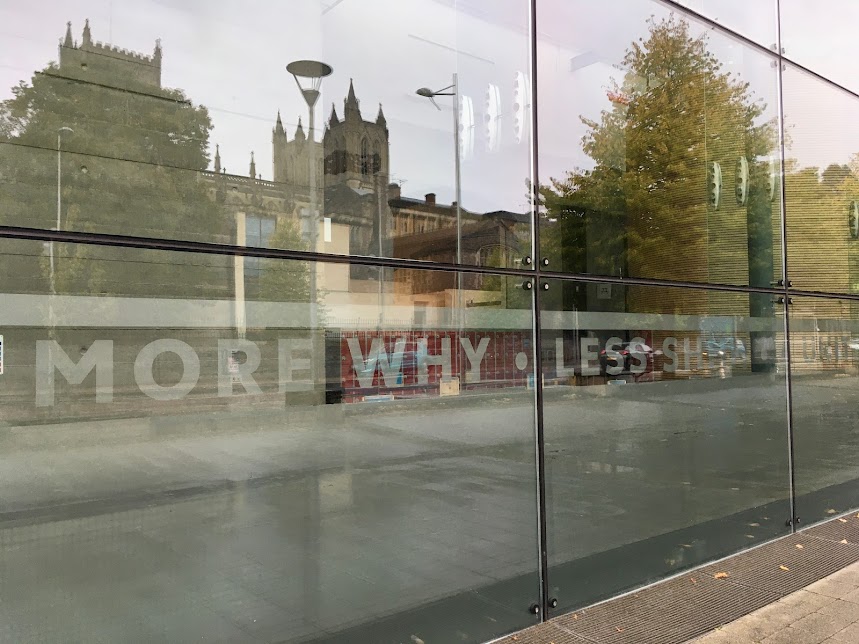This Week’s Bit of String: Water, chipper, calm, them.
“Miss, where are you from? America—I knew it! Do you know how to shoot guns? Say something, say ‘water.’”
I’ve changed jobs recently, emerged from a spreadsheet jungle and opted to be pelted by howls of “Miss! Miss!” as a secondary school Teaching Assistant again. Negotiating crowds of teenagers is a big change after 19 months working from home. Seeing colleagues deliver clear, targeted lessons and witnessing new provisions to nurture students’ mental health makes me feel better about the world.

I worked at the same large local comprehensive school more than five years ago. This is a whole new group of students, slightly less mature than I remember their earlier cohorts being, because obviously they’ve had to deal with Covid disruption. Students still miss school for positive tests, teachers have long absences and our most vulnerable students can’t abide cover teachers. The windows are all open as the temperatures dip into the single digits (Celsius) so throughout the lessons we burrow into coats and scarves; a Year 11 girl shares her fuzzy white gloves so her friend can wear one while she wears the other.
Slang has evolved since I was last working with young adults. They still use “safe” and “wicked.” But there’s also “chipper” for when they want you to think they’ve understood something: “Nah, Miss, I’m chipper, I’ll start working in a minute.” And “calm” to describe someone they like. Maybe it’s just that they know they can get away with things around a “calm” teacher, but I suspect there are other ways they feel safer with him or her, too.
It makes sense that after the last few years “calm” might be one of the highest terms of esteem used by young people. And that “sick” has gone out of fashion.
Reuniting
Supporting in different lessons means I get to learn, too. In a GCSE class about Maths vocabulary, the teacher shared that “Algebra” comes from an Arabic term meaning “reunion of broken parts.” I love hearing that stuff. The kids were busy sharpening rulers under the table or doodling or exchanging gloves or peeling labels off glue sticks, but with gentle prompting they got a few notes down, and the disparate parts came together a little.
The pandemic seems to have given my school cover to broaden its aims from academic achievement to include more nurturing and tolerance. While the government was forced to acknowledge that students couldn’t be expected to pass the same rigorous exams due to lockdown disruptions, there was more leave to consider their mental state. Consequently, more students have Time Out options, to spend a few minutes cooling down in an alternative classroom designed for that purpose. When I last worked at school, students would get an official warning and be one step closer to detention if they didn’t have a pen. Now, all teachers have equipment to loan.

The fact that I’m American serves a similar purpose. My slight accent piques their curiosity, forces them to acknowledge I’m here, lets them make fun of my pronunciation and feel more comfortable. “Water” is a giveaway for an American accent. I can try to make the T more clipped, less like a D, but it sounds ridiculous and forced. When I first emigrated our street was called Water Lane and my accent embarrassed me every time I told my address to local people. I oblige the kids when they want to hear it, though. They like to feel superior in something, even if I have lived on this Small Island longer than they’ve been alive.
I have a stash of writing utensils too, of course. Lessons start much better when I can quietly check with a student that they have the equipment they need and lend what’s necessary, rather than them instantly getting into trouble.
“I bet you still say ‘water’ funny.”
“I’m afraid I haven’t quite got rid of all my Americanisms.”
“Oh, that’s okay, Miss.”
So they get to play the part of being generous and hospitable, too.
Retraining
One successful result of the school’s efforts to support well-being may be the diversity accepted within the student population. While it’s a rural area and not very multicultural, students support their friends of colour and Black Lives Matter. I also got to have a discussion with a Year 11 prefect about her witchcraft practice, and of course the crux of my job is to support students with various disabilities.

With a designated unisex bathroom now on site, other students are able, more and more, to inhabit more comfortable roles. Previously it was agony for certain teens to deal with bodies that were developing in an unwanted direction while their thoughts and preferences veered a different way, and everything around them reminded them how they ought to be. There’s a student in most of my Year 11 lessons whom I’ve tried to remember not to apply gendered language to, but I slip up sometimes since my ways of referring to subsets within the group are old-fashioned.
“Here you go, ladies.” I hand out the GCSE Language practice paper to the two students in the back.
“Non-binary,” corrects one, without even looking up.
“Of course. I’m so sorry, I’ll try to keep doing better.” They shrug and get on with the work. I hope that they’re always around people they can safely express their identity to. People who are, one might say, “calm.”
After all, I’m feeling more and more free to say “water” in my slightly redneck American way. That’s one word I won’t convincingly be able to fix, but I can work on a few others. Having to mind my language puts me in a much more writing-centred frame of mind than when I was dealing with billing and numbers. Have you been picking up any new lingo lately?